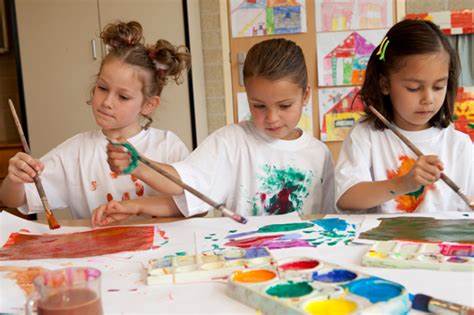This is Steve Ember with the VOA Special English Education Report.
Many groups are working to widen and improve teaching of the arts in American schools. A current national campaign urges Americans to demand and support more such teaching.
Americans for the Arts and other activist organizations developed television messages as part of the campaign. One shows a child lacking in arts training. She asks her father to read to her. But she cannot understand or enjoy creative stories. Instead, she chooses an extremely dull book. It contains lists of legal requirements for buildings. Then an announcer says, “Art. Ask for More.”
Many American school officials and community leaders strongly support arts training as necessary for children. They said so in a study published in two-thousand. The study examined ninety-one school systems in the United States. Schools in these districts had earned recognition for effective teaching of dance, music, drama and visual arts, like painting.
Two groups were responsible for this study: the President’s Committee on the Arts and Humanities, and the Arts Education Partnership. The committee advises the White House about arts policy. The Arts Education Partnership is a national coalition of more than one-hundred groups. The coalition is trying to widen the influence of the arts in American life and in schools.
In the nineteen-nineties, less than half of middle school students studied the arts in school. And the programs they did have were not all very good. The United States Department of Education noted this in nineteen-ninety-seven. One of its programs, the National Assessment of Education Progress, studied eighth graders across the country. The study involved more than six-thousand students in almost two-hundred-seventy schools. The assessment said they were not as well trained in the arts as they should have been.
Educational experts have good things to say about students who study the arts. They say these students are more likely to do well in other subjects than other students. They are more likely to become school leaders. In addition, they do more community service. And, they are less likely to get into trouble.
This VOA Special English Education Report was written by Jerilyn Watson. I’m Steve Ember.
